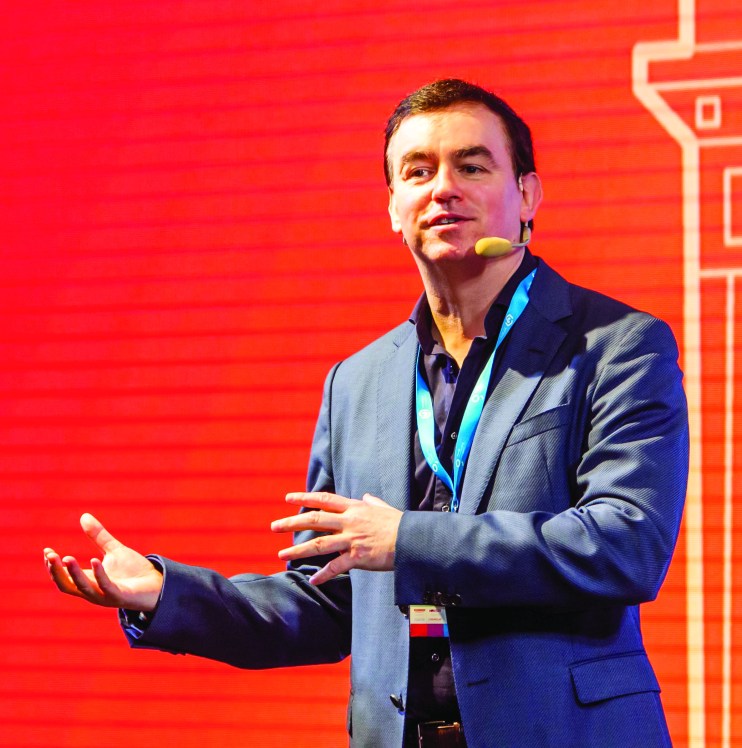Two sides of the same coin

Among the many questions we have concerning the future of our society, I doubt that anyone would ask if technology will be less or more present in our lives tomorrow. I believe we all know the answer: our lives and the key structures of our society will continue to rely more and more on technology.
This has been the trend for decades, but it appears that things have accelerated over these last few months. The question I think we should collectively be asking is: what kind of technology and how will it impact our lives? Despite the abstract nature of technology, it is built by humans, and it should always be subject to the values and principles of its creators and operators.
At Coinsilium (AQSE:COIN), we look at technology through various lenses, among these, one is to identify technology which has the potential to be adopted at such a scale that it can significantly increase the valuation of our investment. Another lens is to try to foresee the impact this technology could have on its users and society in general. In the absence of a positive impact we would rather not consider it as a Coinsilium portfolio candidate.
Over the last few months we have all had to endure a huge amount of noise coming from the media in general and from social media in particular. Some may refer to this noise as ‘fake news’, but I prefer the term ‘corrupted data’, and in stressful and testing times like these, corrupted data can have far-reaching and serious consequences. Corrupted data raises questions about provenance and motive, which, in a world of centralised silos, where data can easily be manipulated, are nearly impossible to determine. Corrupted data undermines the foundations of our society because it undermines our trust in data, and data is what we rely on daily to make our decisions. This increasing lack of trust in data will increase the need for us to require data to come from clearly identifiable and incorruptible sources. If an entity such as a pension fund, for example, implied that we should trust it is holding a certain amount and type of assets, we should be able to request to see a proof of these holdings, not a predicted or third-party certified quarterly or yearly valuation but the real-time value of its holdings, accessible by us at any time. The pension fund’s holdings information should be stored on distributed file systems and accessible via permission-less, censorship resistant protocols such as RIF Storage which ensures full transparency and open access to the data. RIF Storage is part of the RSK Infrastructure Framework decentralised tools designed by IOV Labs, a blockchain company we invested in at the beginning of 2016, following Coinsilium’s IPO.
In a similar manner, recruiters should be able to assess job candidates’ credentials and skills without relying solely on the candidates own claims on unchecked professional social networks. Here again, trusting data is key for a consequential decision such as hiring a new employee. Indorse, another Coinsilium portfolio company since 2017, solves this issue by offering a cost-effective, independent method of assessing the candidates’ skills – for now, coding skills – by vetted members of the Indorse platform and a network of software experts located around the world. .
A growing sector that has emerged from the development of blockchain technologies is in decentralised applications (Dapps). One of the core features of decentralised applications is their function-centric structure. Dapps are focused on the function they are built to perform. Where legacy systems have to deal with layers of various interests and external influences, all potential avenues to ‘rig the system’, the designers of Dapps try to reduce risks from human intervention and exploits, as much as they can and build the most effective function-centric platform possible. Dapps use smart contracts, programmed logic enforced by blockchain protocols such as the RSK smart contract platform which is uniquely secured by the Bitcoin network. The objective of smart-contract powered, open source, trust-minimising Dapps is to offer similar services as centralised services such as lending or identity verification and replace centralised governance by smart contracts with the support of community-based governance. Despite being in the early years of the blockchain industry, we can see decentralised platforms becoming one response to the question of the type of technology we should rely on in the future.
I believe blockchain technology can help us usher into an ineluctable, hyper-digitised world while preserving our privacy, decreasing our reliance on centralised entities and making the data we rely on both censorship resistant and more transparent.
This may seem quite an optimistic statement given the strict measures we can expect to be imposed on all aspects of our lives under a broad umbrella of ‘health risk’ reduction policies. But my optimism finds its source in the work of tens of thousands of developers building decentralised, privacy-preserving solutions which could swiftly replace the centralised ones, and the billions of dollars invested in the last few years by a plethora of venture capital firms and retail investors in the blockchain technologies powering these solutions. The next step for this vision to become true is a wide adoption of blockchain technology solutions. Adoption will require more blockchain projects funded and more applications launched but also more users choosing these over legacy, closed applications. Adoption is one aspect we are helping our portfolio companies with and which we feel is a shared goal by the whole industry. The first step towards adoption is educating the market and this is something Coinsilium has been doing since 2014.
Being aware of the impending paradigm shift is only part of the equation; it is our responsibility to move towards a world that is improved, not impaired, by technology innovation, and to make sure that we choose the right side of the coin.
By Eddy Travia, Chief Executive at Coinsilium Group (AQSE:COIN)